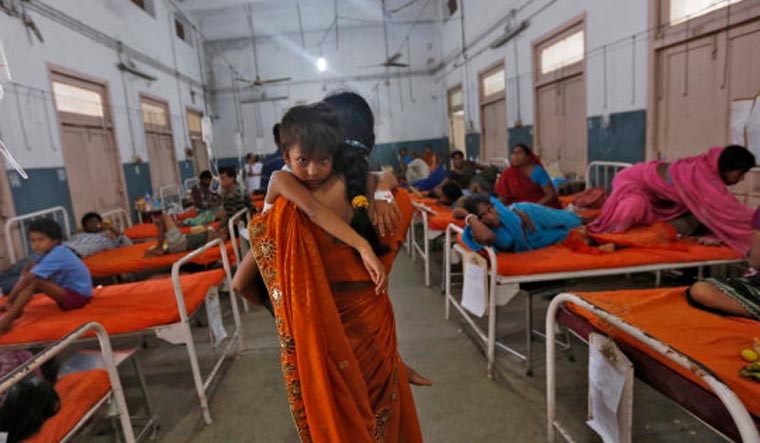In a bid to regulate the rising costs of healthcare and curb instances of medical malpractice in private hospitals, the Delhi government today released a draft policy.
Private hospitals and nursing homes would be required to cap their profit margins for drugs and consumables at "up to 50 per cent", and "up to 35 per cent" for implants, according to the draft policy. “All clinical establishments shall bill non-NLEM (National List of Essential Medicines) drugs/disposables at their respective procurement price, plus maximum up to additional 50 per cent as mark up against administrative handling charges or MRP, whichever is less,” the policy reads. For a price cap on investigations, the draft recommends a “sub-committee” to look into the matter.
Private hospitals make huge profits – up to 1737 per cent – on drugs, consumables, medical devices, and medical devices and diagnostics, a report by the National Pharmaceutical Pricing Authority had revealed in February. The report came after public outrage over the case of Adya Singh, the seven-year-old who died of dengue at Fortis, Gurugram, and whose family was charged Rs 16 lakhs for her treatment that lasted for 15 days. Another case of a pre-term baby, who was declared dead by doctors at the Max Hospital in Shalimar Bagh, but later was found alive by the family, also triggered massive outrage over negligence and overcharging at private hospitals.
Delhi is one of the several states that have still not ratified or implemented the Clinical Establishments (Registration and Regulation) Act, 2010. Few states such as West Bengal, Karnataka and Kerala, though, have passed their own version of the central law to regulate the private healthcare sector.
However, in light of the outrage over the Fortis and Max cases, in December last year, the Delhi government constituted a nine-member panel headed by Director General of Health Services, Kirti Bhushan. The draft advisory released on Monday, is based on the recommendations made by this expert panel, and are up for public comments for the next 30 days. Post feedback, these suggestions will be implemented by making changes in the Delhi Nursing Homes Registration (Amendment) Act, 2011.
The panel's recommendations include “transparency” in packages offered by private hospitals, and “counselling” for complicated procedures. Any charges paid to doctors without the consent of the patient would be considered as a malpractice, it says.
However, the draft does not provide for any cap on the specific rates charged by hospitals.
The draft also says that hospitals shall not detain a dead body for non-payment of dues. The patient's family would be given a 50 per cent waiver on the bill if the patient dies within six hours of being brought to the hospital. A 20 per cent waiver would be given if the patient dies within six to 24 hours of being brought into the hospital.
The draft policy also suggests that patients should not be compelled to buy drugs from the hospital's in-house pharmacy, and be allowed to purchase medicines from outside the hospital. Other recommendations include a declaration on the bill that no cuts or commissions have been given; cost of treatment for medico-legal road accident victims to be reimbursed by the Delhi government according to approved rates, and displaying prominent charges such as doctors' consultation, room tariff, nursing and diagnostic charges at conspicuous places in the hospital premises.
The policy, though, is silent on any penalties levied on hospitals in case of malpractice, neither does it provide for any grievance redressal mechanism.
Experts have welcomed the draft, but expressed apprehensions regarding possible legal glitches in its implementation. “We welcome the proposed measures to lower the costs of treatment and bring more transparency and accountability. They are progressive in intent and signal a paradigm shift in the thinking of governments. However, we are afraid, the measures need thinking through and legal vetting to ensure they do not get stuck in courts,” said Malini Aisola, who works with the All India Drug Action Network, a civil society organisation working for patient rights.
“The underlying Act on which these recommendations seek to be based (Delhi Nursing Homes Registration Act) would need several amendments to accommodate these measures. Failing these amendments, the Delhi government's good intentions will be of little to no avail,” said Aisola.


